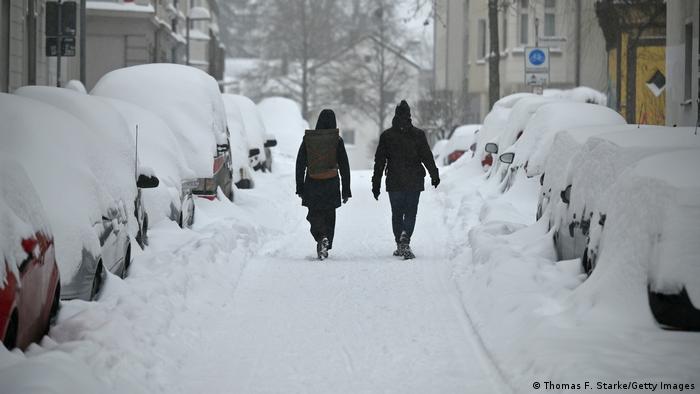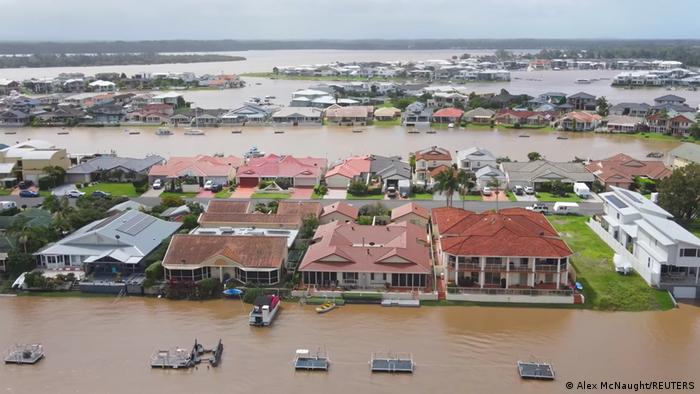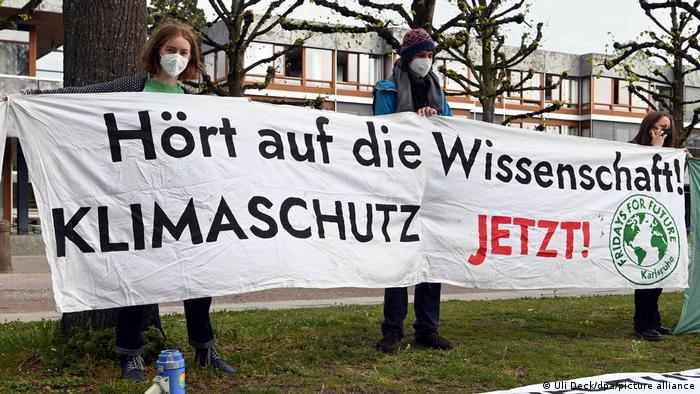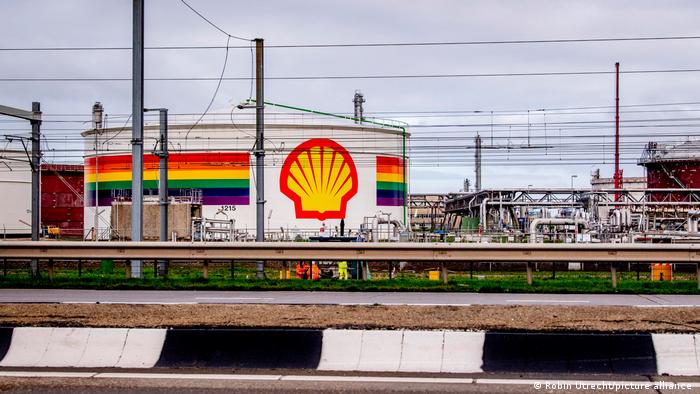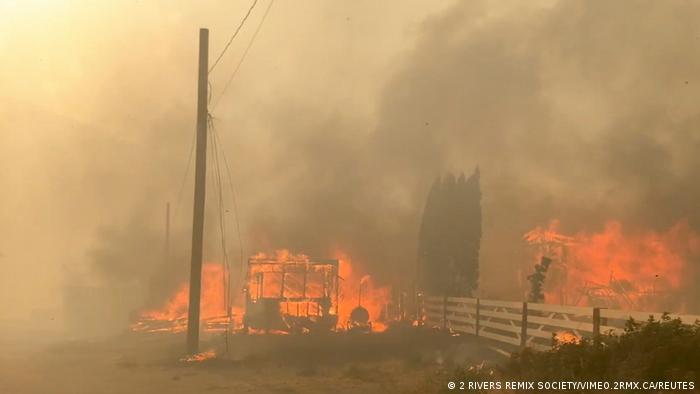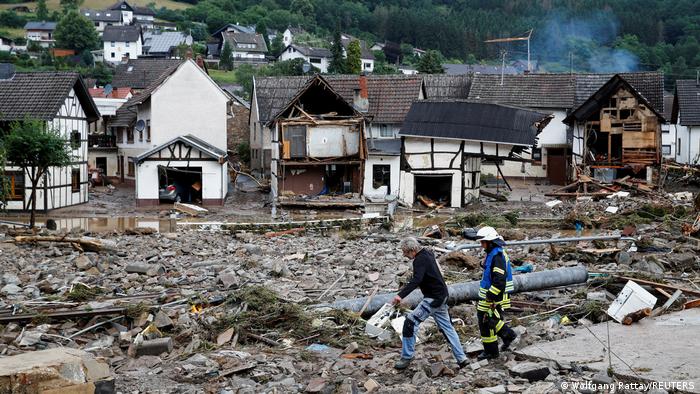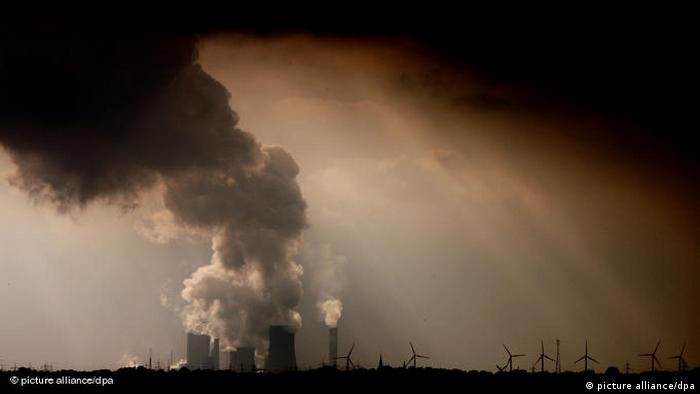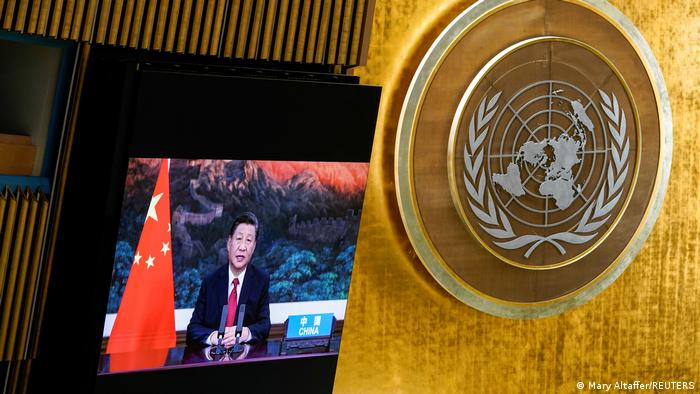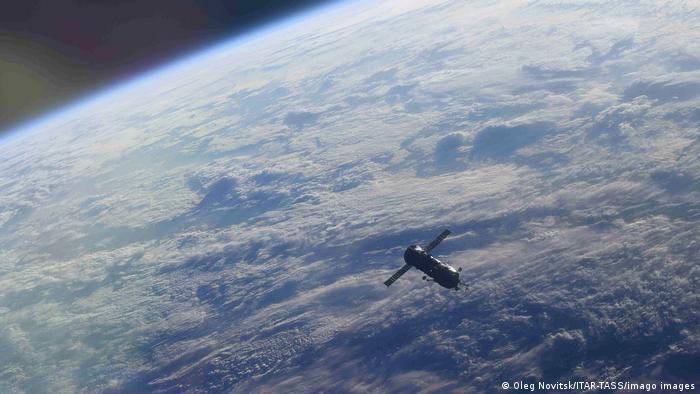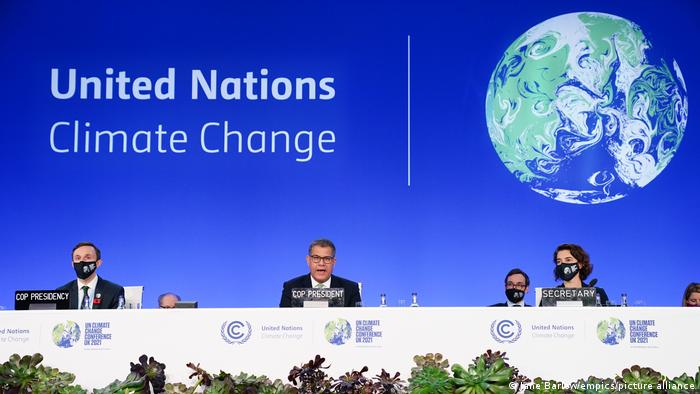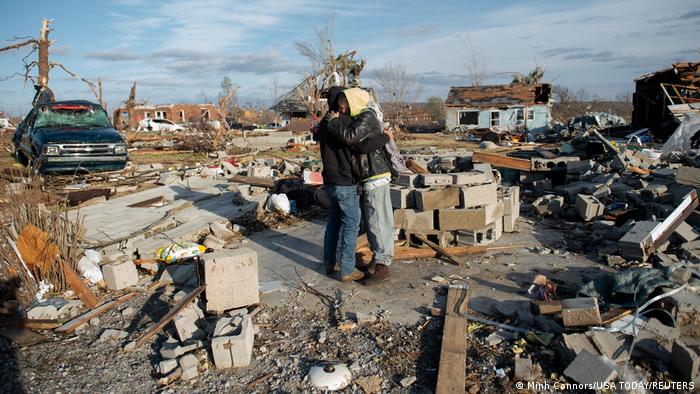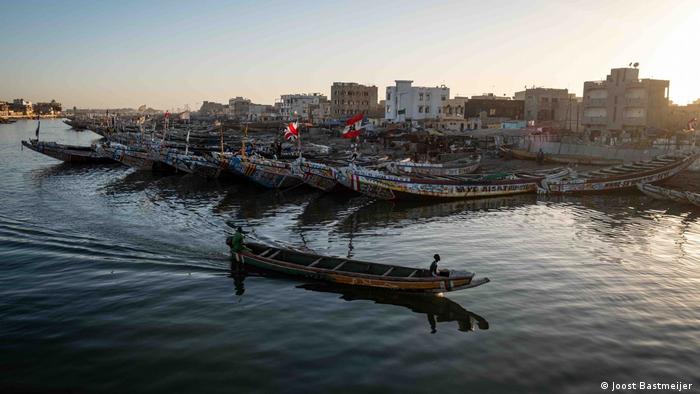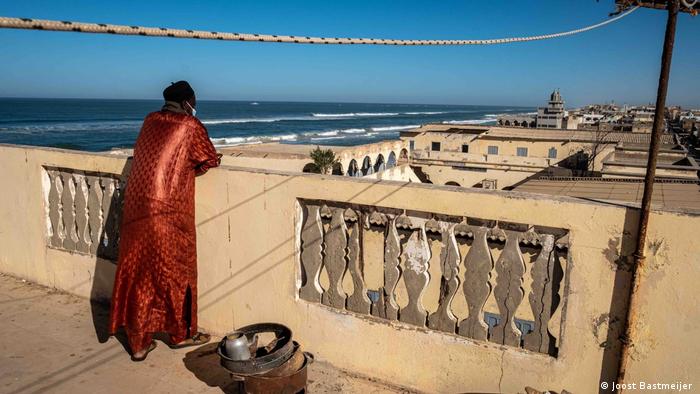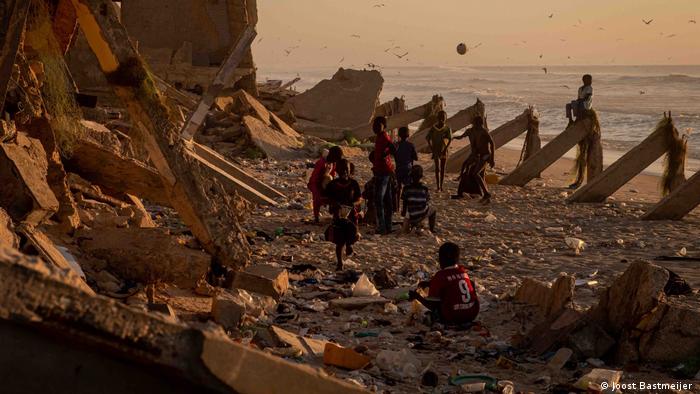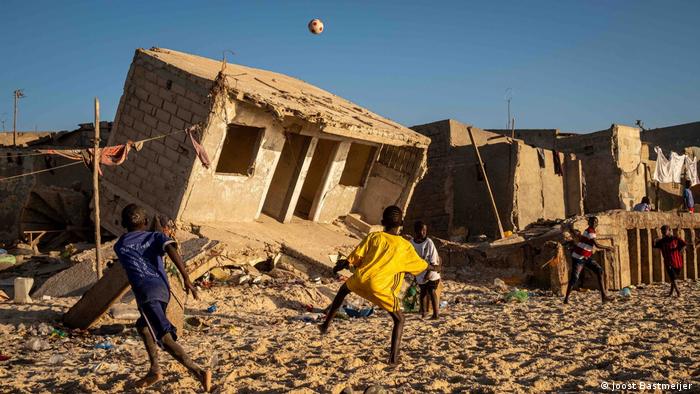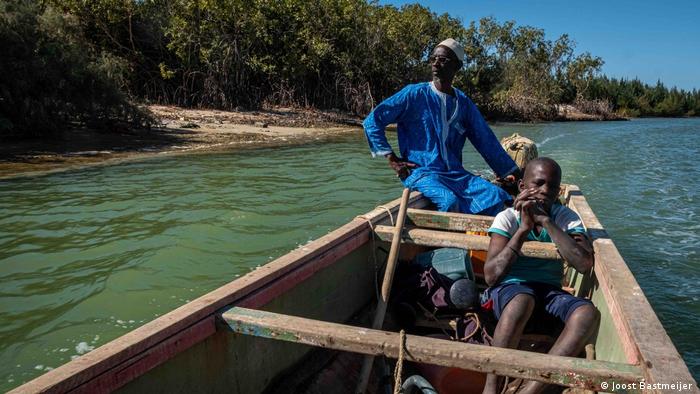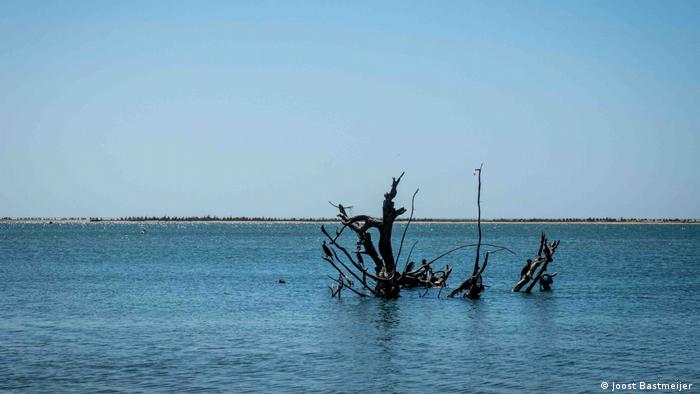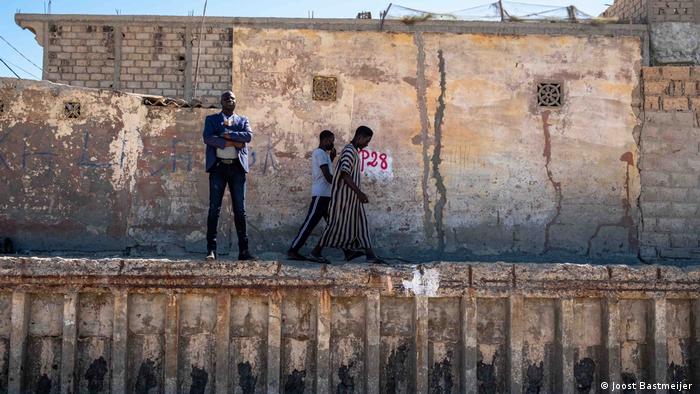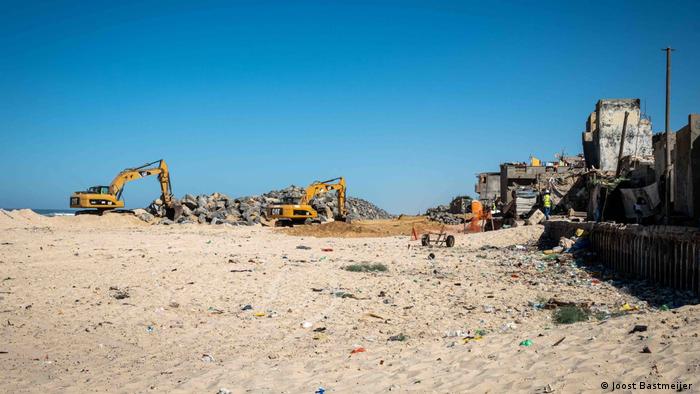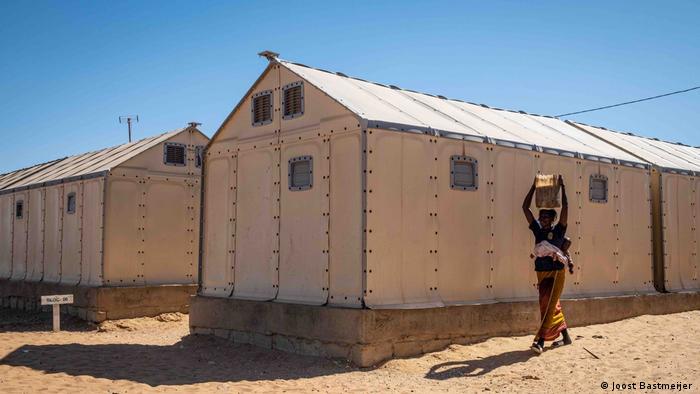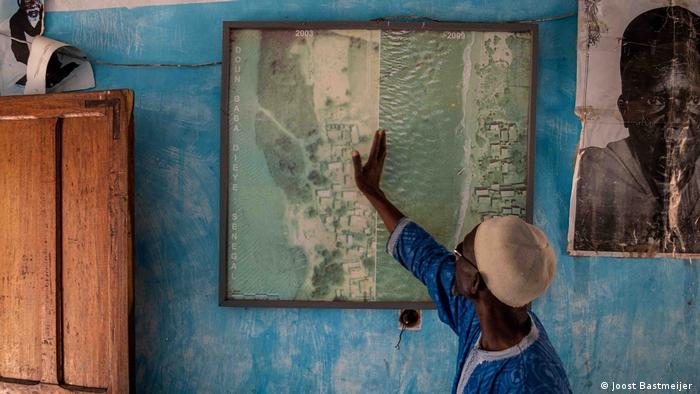The Intergovernmental Panel on Climate Change (IPCC) has released the latest report. It shows the stark picture of a rapidly developing climate crisis that is particularly impacting vulnerable communities. This is the UN body responsible for assessing science related to climate change.
“The most striking aspect of this report is the fact that climate impacts are already being manifested in really horrendous, deadly ways all over the globe. [and]Already having profound impacts on food system. This is not about a future that’s yet coming, it’s already here at many places,” Rachel Cleetus (policy director and lead economist for Climate and Energy Program, Washington, D.C.-based Union of Concerned Scientists) said.
Antonio Guterres, UN Secretary-General, stated that “Today’s IPCC Report is an atlas human suffering and a damning accusation of failed climate leadership.”
Themed on climate impacts, adaptation and vulnerability, the second installment of the IPCC’s sixth assessment report builds on a first edition focused on the physical science of climate systems and intensifying climate change.
Already, climate impacts are being felt
Authored by 270 scientists who assessed over 34,000 studies, the report singles out Africa, Asia, Central and South America, small island nations and the Arctic as areas that are especially being impacted by heatwaves, droughts, floods and rising seas weather extremes that are also driving biodiversity loss and mass mortalities in species such as trees and corals.
According to the report, Africa’s climate change has led to a 34% drop in agricultural productivity, which is higher than any other region. Future warming is expected to shorten growing seasons and worsen water stress.
Walter Mawere is the advocacy and communications coordinator at humanitarian NGO Care International in Somalia. He said that Somalia was the hardest affected by climate change. He describes more than 2,400 camps for internally displaced people in the country, which are filled with families fleeing a drought and previous extreme flooding.
“The flooding has left 70% without access to clean water,” he stated during a briefing that preceded the release of the report.
-
2021’s greatest climate moments
January: A new year starts without a bang
Many countries around world have banned the usual New Years’ fireworks to ease pressure on hospitals flooded with COVID-19 cases. Germany saved approximately 3,500 tons of plastic waste. Amsterdam has a ban on home pyrotechnics and organizes public displays to break the taboo.
-
2021’s greatest climate moments
February: Arctic chill in Europe
Europe and North America experienced plummeting temperatures. Many regions were covered in deep snow. Arctic warming caused a drop in the polar Vortex and a weaker stream, conspiring together to send chilly Arctic air south. The jet stream can also be disrupted, sending warm air from the tropics. As the planet heats up, we are yet to see which trend will prevail.
-
2021’s greatest climate moments
March: Australian deluge
After heavy rains flooded eastern Australia, thousands of people were forced to flee their homes. Gladys Berejiklian (then the premier of New South Wales) called the inundation “one-in 100-year events.” Some commentators claimed that this type of flooding is actually becoming the new normal.
-
2021’s greatest climate moments
April: German court rules in favor of the future
The Constitutional Court of Germany gave Europe’s largest economy a reality check. It declared the German Climate Protection Act invalid for failing to include climate targets beyond 2030. The court stated that this would put too much burden on future generations. The Bundestag strengthened the legislation by pledging to be climate-neutral by 2045.
-
2021’s greatest climate moments
May: Oil giant held accountable
A Dutch district court ordered Shell to cut its carbon dioxide emissions by 45% by 2030. This was in line with the Paris Agreement. It was the first time a private firm had been legally obliged to comply with the global accord. The judge stated, “This applies to everyone in the world, and Shell too.”
-
2021’s greatest climate moments
June: Infernal temperatures
A heat wave in Canada saw more than 230 deaths, with record temperatures reaching nearly 50 degrees Celsius (122 F), in Lytton in British Columbia. Forest fires reduced large swathes of the village to ash the next day. This was also a season of devastating fires in California, Siberia, and other Mediterranean countries like Turkey and Greece.
-
2021’s greatest climate moments
July: Central Europe is flooded with devastating floods
Central Europe was hit hard by torrential rains that turned streams into rivers, flooding villages and towns as they burst their banks. More than 180 people died in the Rhineland region of Germany. Extreme floods also struck parts of Belgium, the Netherlands, and Baden-Wrttemberg in southern Germany. Germany alone suffered property damage worth several billion euros.
-
2021’s greatest climate moments
August: No room left for denial
The UN Intergovernmental Panel on Climate Change published a report that stated unambiguously: The climate crisis has worsened than we thought, and humans are to blame. The IPCC’s assessment reports on climate change are the most comprehensive and thorough on the subject, drawing on more than 14,000 peer reviewed studies.
-
2021’s greatest climate moments
September: China reins in coal abroad
Premier Xi Jinping, China’s premier, announced at the UN General Assembly that China would not build coal-fired electricity plants abroad. This ends a construction spree that saw hundreds of Chinese-backed coal power projects rise as part of the Belt and Road Initiative through Asia and Africa. Beijing continues to build coal power plants in China.
-
2021’s greatest climate moments
October: Recording greenhouse gas figures
2020 saw a new record for atmospheric concentrations. According to the World Meteorological Organization’s annual report, the increase in greenhouse gasses year-over-year was higher than the average over the past decade, despite economic fallout from the pandemic. The WMO released the figures, warning that the Paris Agreement targets are still far off track.
-
2021’s greatest climate moments
November: COP26 scribbles down its words on coal
After a period of hiatus due to a pandemic, the UN Climate Change Conference was reopened in 2021. However, it failed to agree on the details for the Glasgow Climate Pact. The final text only agreed to a “phasedown” despite China and India refusing to commit to phasing out coal. Many found this disappointing, although not surprising. Greta Thunberg already declared COP26 “a global festival of greenwash.”
-
2021’s greatest climate moments
December: Deadly tornadoes across the US
The year was drawing to a close and the US was again hit by extreme weather. In six states, 36 tornadoes caused havoc and destroyed homes and businesses. Many people were killed and homes and businesses were damaged. Biden announced that he would investigate the effects of global heating on the tornadoes. After Typhoon Rai struck, almost 400 Filipinos died.
Author: Jeannette Cwienk
Hoesung Le, Chair of IPCC, stated that the IPCC report also serves as a “disastrous warning about the consequences for inaction”. “Our actions today are going to influence how people adapt and how nature responds in the face of increasing climate risks.”
Climate adaptation and financing: Equity and justice for equity and justice
The report specifically addresses “equity, justice”, and particularly vulnerable communities in economically less developed countries as a response to the worsening global climate impact.
Rachel Cleetus stated that “the recognition of justice is integral for the way we address climate crisis.” She added that the report considers socioeconomic as well as structural factors that can cause certain populations to be “disproportionately impacted” by climate change.
After the perceived Failure of COP26 to commit funds to address adaptation, and rising climate-driven loss and damage, the report details the need for greater climate financing.
Currently, however, more than 90% of climate funds go to mitigation rather than adaptation which is “way below most estimates of the cost of adaptation needed today to manage the risks of climate change over the next ten to 20 years,” said IPCC report lead author Mark New, who is director of the African Climate and Development Initiative at the University of Cape Town.
According to New, only 10 to 15% of the available adaptation finance is made available for climate-vulnerable local communities.
The report calls for adaptation to receive a balanced amount of climate finance.
Antonio Guterres said, “Adaptation must be pursued as urgently as possible.”
Building on the New emphasis on adaptationThe IPCC reaffirmed the need for richer nations “to provide higher levels of financial assistance for adapting toclimate shocks and addressing losses and damage experienced by the poorer countries,” said Camilla Tuulmin, Senior Fellow at the International Institute for Environment & Development.
She added that the poorest people in the world “contribute the least to the problem with climate change” but suffer the most devastating effects.
For example, Sub-Saharan Africa’s average per capita carbon footprint is only 0.1 tons per annum in 2020, compared with up to 15 tons in Australia and Canada.
Adaption through ‘healthy eco-systems’
The report also emphasizes the importance of reversing biodiversity’s threat as part of adaptation.
Kate Jones, University College London chair of ecology and biodiversity, stated that “Protecting and restoring the natural world will help store more carbon and make our landscapes more resilient against the growing extremes caused by climate change.”
“This report recognizes the interdependence of climate, biodiversity and people,” said Hoesung Lee.
Promoting “healthy ecosystems” is another important adaptation measure aimed at fostering climate resilience by ensuring reliable access to food and clean water.
Hans-Otto Prtner, co-chair of the IPCC Working Group II, stated that society can benefit from nature’s ability to absorb and store carbon by restoring degraded ecosystems.
He said, however, that adequate finance and political support were essential.
Climate crises and war are “connected”
Looking ahead to November’s COP27Toulmin was excited by the fact that Africa’s chapter was the first climate conference to take place in Africa.
Russia’s invasion and subsequent destruction of Ukraine caused the final review to be influenced by the IPCC report. The delegation of Ukrainian authors was forced to withdraw from this process to hide in bunkers.
“There’s a connection.” Svitlana Krakovska, a climate scientist heading the Ukrainian delegation, of the role of oil and gas in simultaneously unfolding war and climate crises. “All the money to finance this aggression comes from oil, and fossil fuels. She said that the more oil we use, the more we sponsor aggression.
Edited By: Tamsin W. Walker
-
Senegal: Rising seas threaten Senegal’s historic city and livelihoods
Senegal’s water’s edge
This is Saint-Louis, the port in Senegal. This city was built in 17th-century to protect its strategic location on the coast at the mouth of Senegal River. It was the capital and largest of French West Africa up until 1902. Its proximity to ocean water is a danger. The UN has warned that the city is more at risk from rising sea levels than any other African city.
-
Senegal: Rising seas threaten Senegal’s historic city and livelihoods
World Heritage washed away
Mouhamadou Moussa Gaye is a schoolteacher looking out over Guet Ndar which is a district in Saint-Louis and a UNESCO World Heritage Site. Guet Ndar is located on a peninsula called the Langue de Barbarie, which separates the Senegal River estuary from the open ocean. The coastal erosion has already destroyed the schools, mosques, and homes that Gaye used to teach on the peninsula.
-
Senegal: Rising seas threaten Senegal’s historic city and livelihoods
A school in ruins
Mother Nature doesn’t care that a site is designated UNESCO World Heritage Site. Even the most basic facilities of the public can be damaged by the ocean’s currents. Three schools in the city have taken the pupils who were once part of the demolished school’s students. They still enjoy playing in the ruins of their old classrooms after lessons are over.
-
Senegal: Rising seas threaten Senegal’s historic city and livelihoods
Erosion takes homes
2003 was the year that authorities built a channel through Langue de Barbarie to allow water to flow out of the estuary, away from Saint-Louis, and away from the Senegal River. But their attempt to protect the city failed. The water flowed both directions, eroding banks of the channel, until it opened into an enormous gulf, taking 800m of Guet Ndar beach and neighboring villages with it.
-
Senegal: Rising seas threaten Senegal’s historic city and livelihoods
A vanished village
Ahmet Sene diagne lived in one of these villages. As he navigates the waters along Saint-Louis’ coast in a “pirogue”, with his son, he reminisces about how he went to town hall to warn against the excavation of the channel. But officials didn’t listen. Diagne claims, “They didn’t believe me.” “They asked for my diplomas but I don’t have any. I live in the bush.
-
Senegal: Rising seas threaten Senegal’s historic city and livelihoods
No future in fishing
Now, Diagne’s village can only be seen as the stump of a tree. This was the tree under which Diagne got married. His family is part of the Lebu ethnic tribe, who have fished since generations. Their coastal communities are gone and Diagne claims there is no future for fishing. He hopes that his sons will have other options if they get a good education.
-
Senegal: Rising seas threaten Senegal’s historic city and livelihoods
The old colonial seawall
Latyr Fall is the deputy mayor for Saint-Louis and stands on the old seawall which once protected his city. He says, “It dates back 1930 and was constructed by the French colonists.” He is unambiguous that Saint-Louis is under threat from climate change. The sea level rise since colonial time calls for new protections. “The wall does not protect us anymore.”
-
Senegal: Rising seas threaten Senegal’s historic city and livelihoods
Construction of a protective dike
To protect Guet Ndar, the Senegalese government will build a new dike measuring 3 km (1.15 miles) in length and 20m (65 feet) in width. To make way for this massive structure, many houses along the endangered coastline will need to be demolished in order to make space for the new construction.
-
Senegal: Rising seas threaten Senegal’s historic city and livelihoods
Living far from the sea:
Shelters were built with funds from France and World Bank to house those whose homes are being swept away by the rising tide and those who have been displaced to make room for the dike. Diougop is a 10 km inland. The displaced residents complain that the shelters are hot in the day and cold at nights.
-
Senegal: Rising seas threaten Senegal’s historic city and livelihoods
Born from the water
Ahmet Sene Diagne lives now in Jel Mbaam where he grows and sells all his own produce. A map of his village shows where it was before it was submerged on the wall of his house. He doesn’t trust authorities to protect the coast. “They should involve people from here in the plans because we are those who live here and were born from the water,” he said.
Author: Joost Bastmeijer



